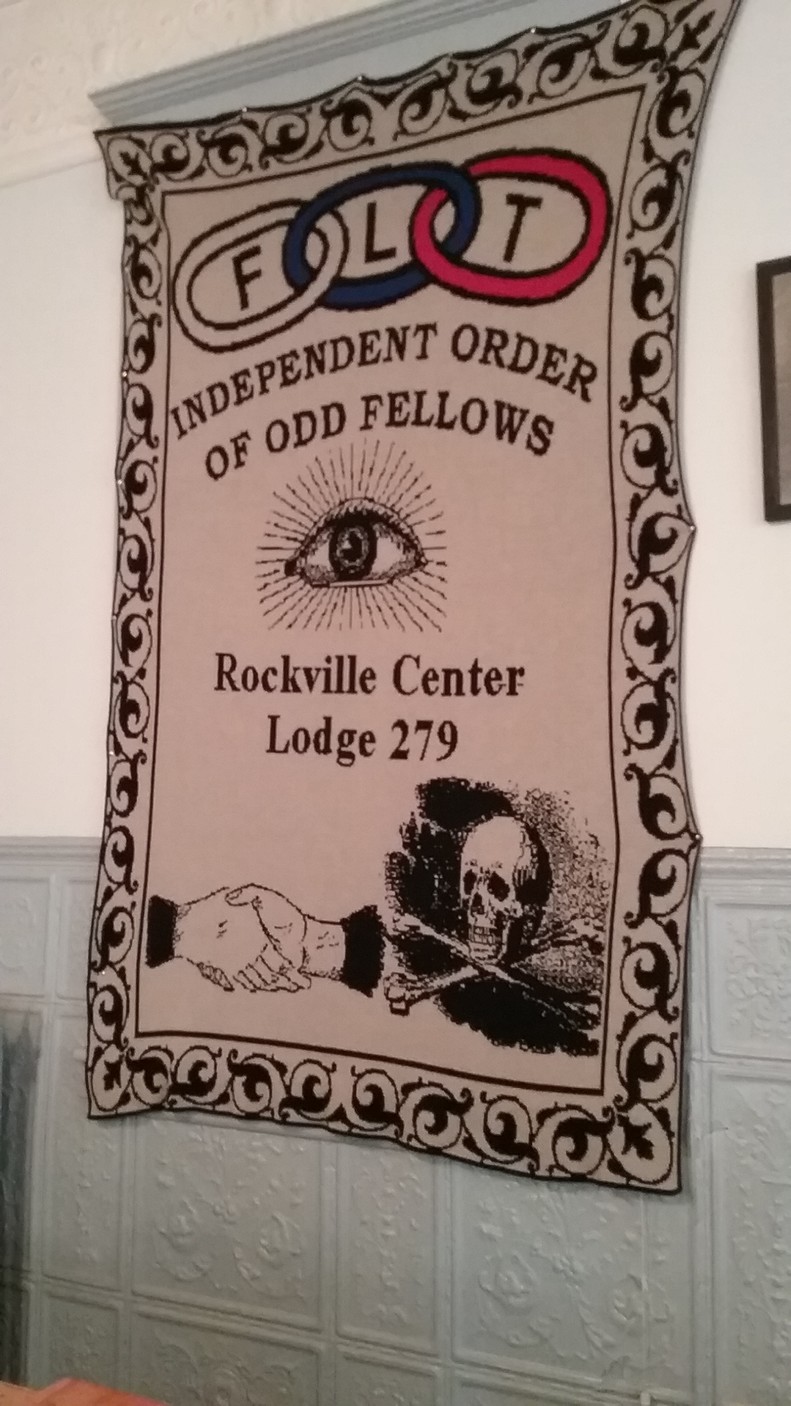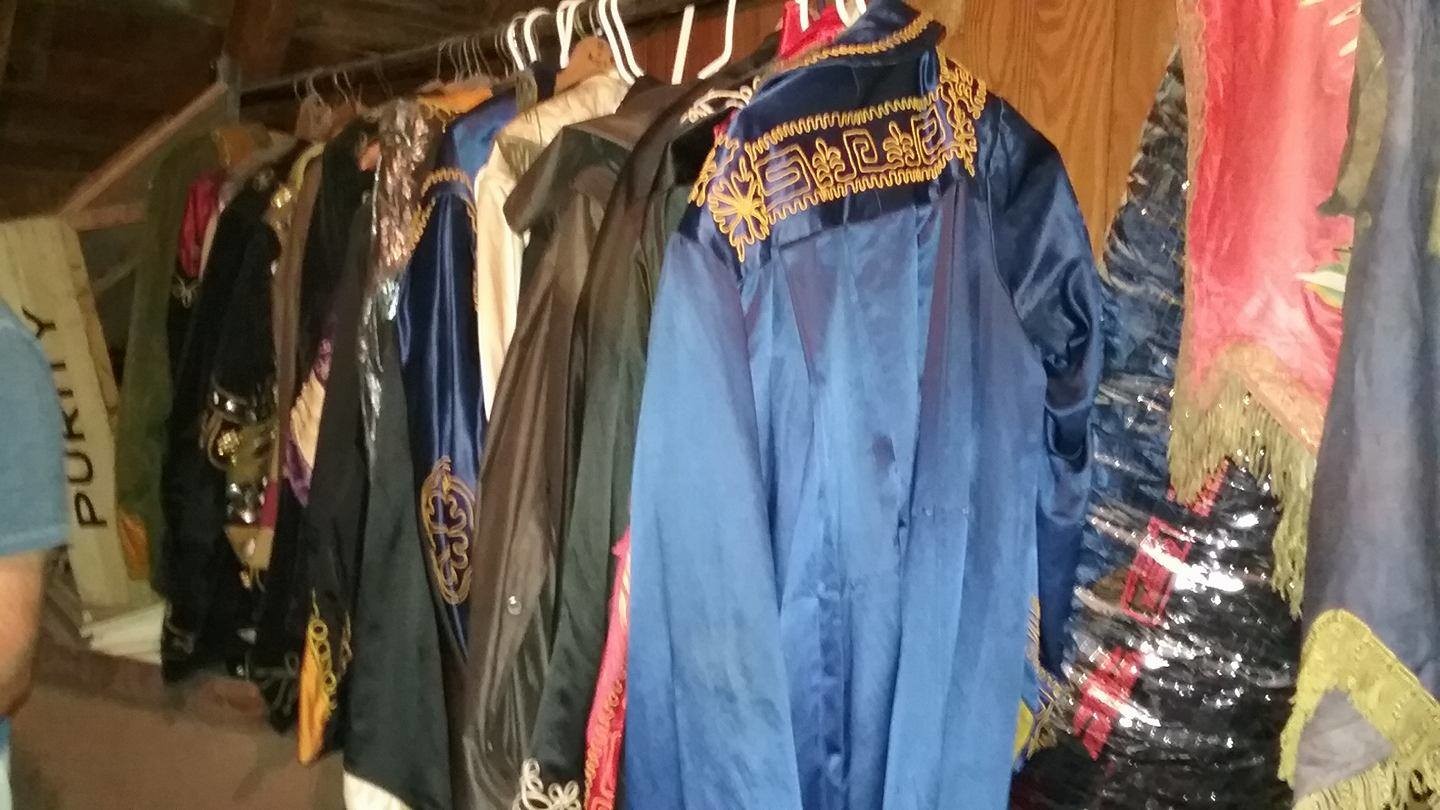‘We really can’t talk about rituals’
Everything you didn’t know you wanted to know about RVC Odd Fellows
“Educate the orphan, bury the dead, visit the sick and relieve the distressed,” said David Ajello, an elementary school teacher and former noble grand of the Odd Fellows of Rockville Centre, listing the core values of the fraternal order. At one time, Ajello added, the Odd Fellows ran schools, cemeteries and hospitals, all to serve those ends.
Wedged between Bareburger and a children’s shoe store on Merrick Road, a door bearing the strange name “Odd Fellows’ Lodge” could be written off by residents as another of the village’s charming quirks.
The Odd Fellows’ original charter hangs on the wall of its clubhouse, or “temple,” as Ajello calls it, and bears the names of its founders: “Seaman, Combs, Wright, Bulson,” Ajello said, rattling them off. “These are all streets in Rockville Centre and Lynbrook. They were also the area’s original Odd Fellows.”
Founded in 1888, the group formerly met where the North Village Avenue Dunkin’ Donuts is now, according to Ajello, and later moved into the Merrick Road space in 1910. After six years, the mortgage was paid off.
“They burned the mortgage [papers] in that tray…” Ajello said, pointing to a framed silver platter hung near the corner.
The Odd Fellows still own the building, and rent out the storefront downstairs, currently occupied by Bareburger. “That’s the reason we’re still in the same place after all these years,” Ajello said. Many other Fellows’ lodges had to close down because they couldn’t afford the rent and other fees, he added, like the group in Mineola, which sold their building and are looking for a new home.
Across the room, opposite the charter, is a portrait of Thomas Wildey, who, in 1819, chartered the first American Odd Fellows lodge in Baltimore. The Independent Order of Odd Fellows began as a social club dedicated to charity and good works in 17th-century England. Anyone could join, regardless of his profession, which was different from the professional guilds — precursors to modern unions — that made up England’s social and economic scene then. A social club of different types of professionals was seen at the time as strange, or “odd,” Ajello explained.
Over the years, the organization has remained professionally diverse. American Odd Fellows members have included Harry Truman, Charlie Chaplain, Frederick Douglass, Al Franken and Winston Churchill, according to the group’s website.
“If you wanted to go up anywhere, be anything,” Ajello explained, “you needed to be a member of a lodge.”
Tom Bogue, a former noble grand, said that membership in an organization like the Odd Fellows got you perks. “In the 1800s and early 1900s, there was no life insurance, no Medicare, so one of the other reasons people joined the Elks, the Masons or the Odd Fellows was that you had support [and] security,” he said. “It was a member benefit.
“We don’t do that so much anymore,” Bogue continued, “because now it’s not so much of a burden like it used to be. If we hear that someone’s struggling, we might quietly send them a little money, whether you’re a member or not.”
Ajello said that although the Rockville Centre group is a fraternal organization, its main purpose is charity.
These days, members raise money for causes, such as Happiness is Camping, a group started by an Odd Fellow that sends ailing children on camping trips; veteran’s aid groups such as Boots on the Ground; Alex’s Lemonade Stand, a childhood cancer charity; and the National Kidney Foundation.
They also partner with the local Elks lodge to help raise money for a new playground in honor of the late Anthony Brunetta, the Recreation Center superintendent, who died last August.
“We have our pet charities,” Bogue said. But members are always open to hearing about other charities to help. They wish they could give to everyone, he said, but there’s only so much to go around.
Beyond charity, the organization has three “degrees,” or levels that members can reach in the organization that entitle them to certain privileges, like a key to the clubhouse and the right to vote on what charities will receive the group’s funds.
Before the degrees are granted, along with full membership privileges, aspiring Odd Fellows must spend a year proving their commitment to the order by attending lodge meetings and events. When a new member is ready to earn a degree, the elder members hold an anonymous vote, which requires unanimous approval.
“FLT” — Friendship, Love and Truth — can be seen on much of the folk art that Odd Fellow lodges make and share with one another, including a blanket hung on the wall and a gavel made from a walrus tusk from a lodge in Alaska. The letters are almost always surrounded by links of a chain. “That’s why you’ll sometimes hear us referred to as the Three Links Fraternity,” Ajello said.
He explained that that the chains were conceptual, representing the bonds of brotherhood, and that there weren’t any actual chains.
Bogue added, “Well actually, in one of the ceremonies, there’s a chain that’s used — ”
Ajello interrupted him quickly and loudly, “You can’t tell that!”
He added, “We really can’t talk about rituals.”

 47.0°,
Fair
47.0°,
Fair 








